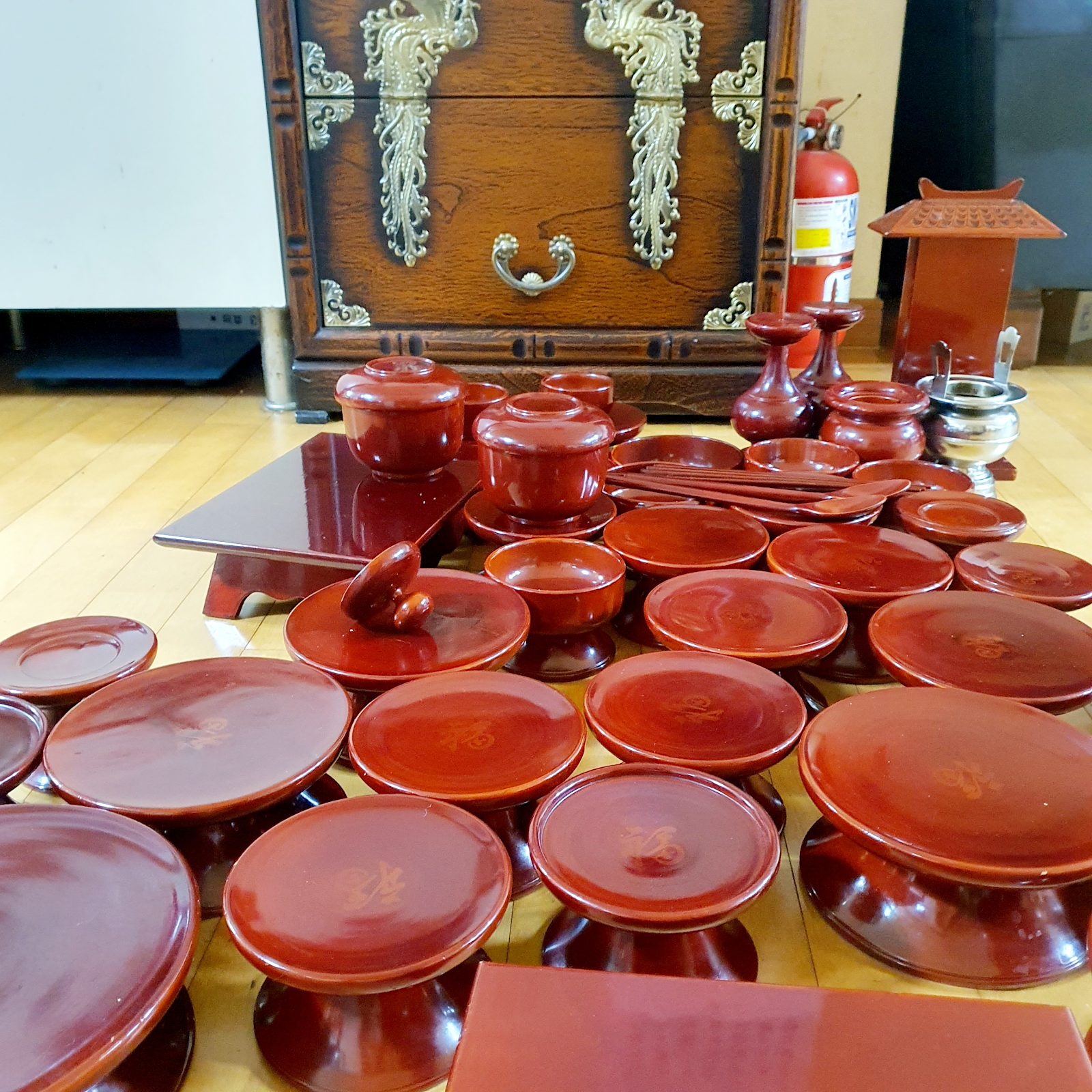Korean Tradition: the Ancestral Rites Culture
- Get link
- X
- Other Apps
Hey there! Let me tell you about a Korean tradition I recently experienced - the ancestral rites culture.
I attended the memorial service
Recently, I attended my grandfather's memorial service, specifically my dad's father. In Korea, we have this tradition where we honor and remember our deceased ancestors. It's like a way of keeping their spirits alive. Now, here's the thing - married daughters are often considered outsiders, so they don't have to participate in parental events. What do you think about it?
What is 'Jae-Sa'?
What exactly is an ancestral rite, or as we call it, "Jae-Sa"? Well, it's basically a yearly ritual where we bow down to honor our ancestors on the day they passed away. We also prepare their favorite foods because we believe that by treating them well, our future generations will be safe and blessed. It's a way of showing respect and love to those who came before us.
 |
| My grandmother and grandfather passed away decades ago. |
Role of Sons
Here's a tidbit: Korea has been influenced by China for a long time, and Confucianism, a philosophy that originated there, had a strong impact. That's why ancestral rites often prioritize the eldest son as the host. The sons and their families gather together to perform the rituals.
Food in the Ancestral Rites
Now, let's talk about the food. Ah, food - the heart and soul of any culture! At ancestral rites, a wide variety of dishes are served. Of course, we try to include the favorites of the deceased, but there are other types of food involved too. Think meat, fish, vegetables, and fruits - a real feast! And let me tell you, preparing all this food takes a lot of effort and time. It's like a labor of love, or as we say, it requires blood, sweat, and tears. Ironically, though, it's the women who prepare the food for their husbands' deceased ancestors, not their own. Talk about dedication!
 |
| special bowls for the ancestral rites |
Holiday Syndrome
These ancestral rites happen not only when someone passes away but also on New Year's Day and Thanksgiving. The number of rites can vary depending on which ancestor we're honoring. It's like a mini-holiday of its own, but sometimes it can be quite stressful. In fact, we even have a saying called "holiday syndrome" because the stress of preparing food for ancestral rites can lead to conflicts. It's crazy how even holidays can sometimes take a toll on relationships, right?
I bought Jeon
In my family, for instance, when the daughter is married and living away from home, and there's no son, my mother takes on the daunting task of preparing all the food herself. Imagine being over 70 years old and dealing with all that! One particular dish that stands out during ancestral rites is called "Jeon." It's like a Korean pancake or fritter that's incredibly delicious but also takes a lot of time to make. This time, I decided to buy Jeon and had it delivered. That alone was a huge relief for my mother, bless her.
Changes of the Rites
Now, let's talk about how the ancestral rites culture has changed over time. These days, many families choose to travel or simplify the ancestral food during holidays. It's becoming less common to hold elaborate rituals. But still, preparing for these occasions can be quite burdensome, especially for Korean women. In fact, statistics used to show that the actual divorce rate increases during holiday seasons due to the added stress. Yikes!
Past and Now
Speaking of change, in the past, ancestral rites used to be a big family affair. We would gather together, eat the prepared food, and share stories. But now, with the rise of nuclear families, things have changed. Younger generations are less involved, and usually, it's only the older folks who perform the ancestral rites for their parents. It's a different dynamic altogether.
 |
| My father and his brother holding a memorial service |
For a Simpler Memorial Service
When my parents pass away, I've decided that I'll opt for a simpler memorial service. It's a way to pay my respects without going through all the elaborate preparations. However, I can't help but feel a bit regretful that the ancestral rite tradition might disappear when it's my turn. There's something special about passing down these customs and instilling a sense of tradition in our children, even if it's just a tiny bit. How about in your country? What are the traditions and customs you hold dear?
- Get link
- X
- Other Apps